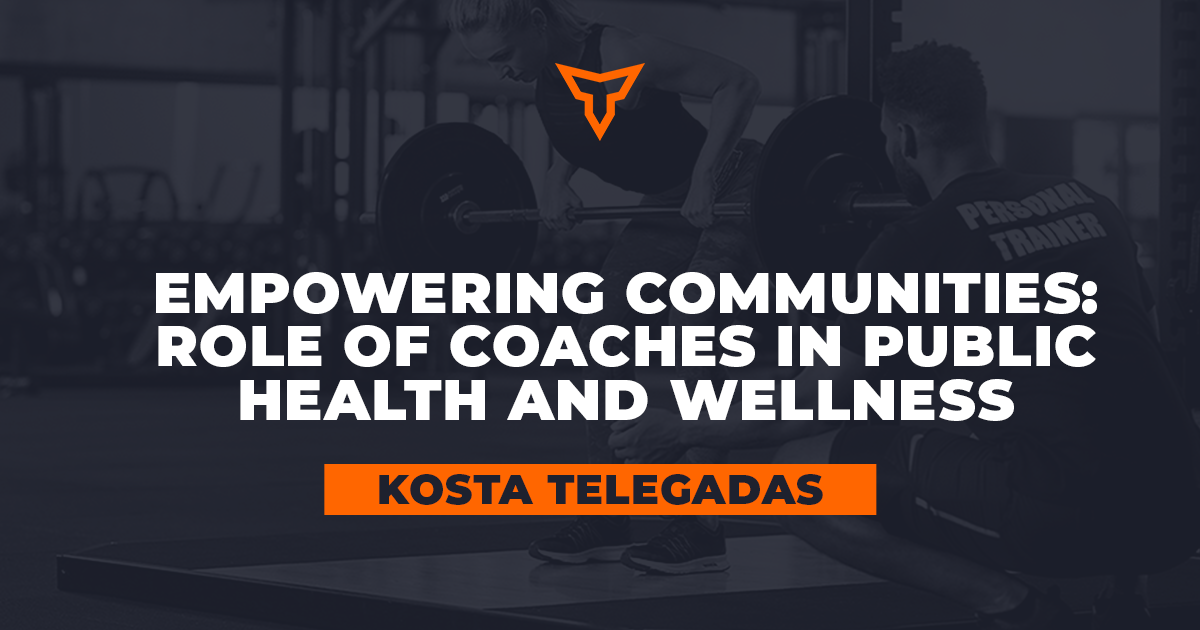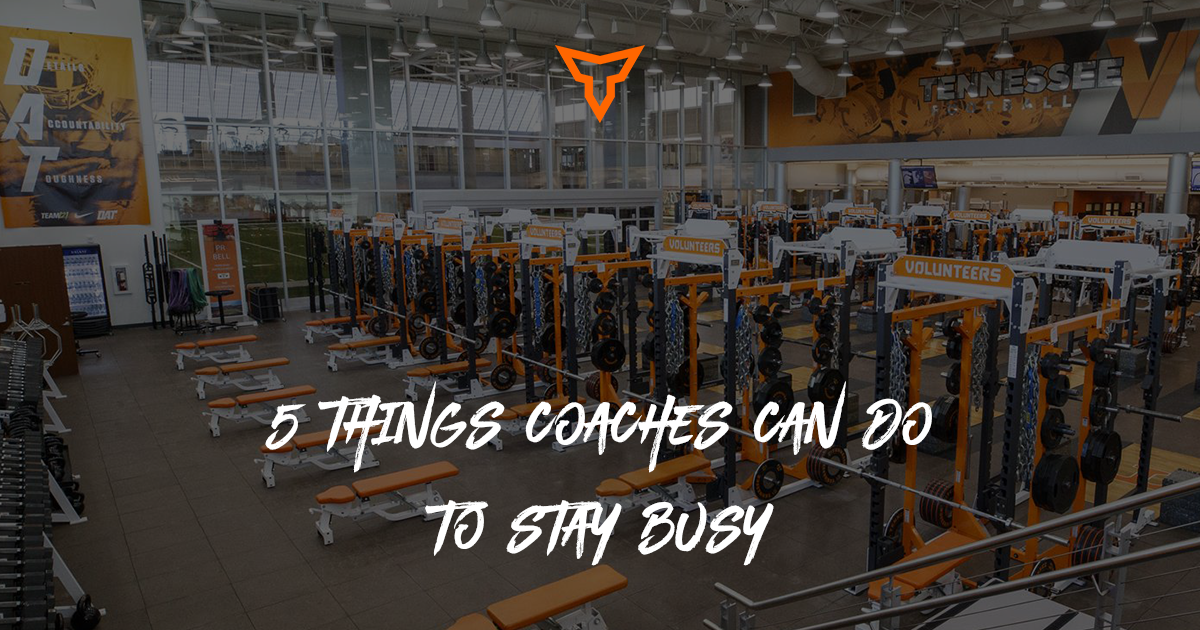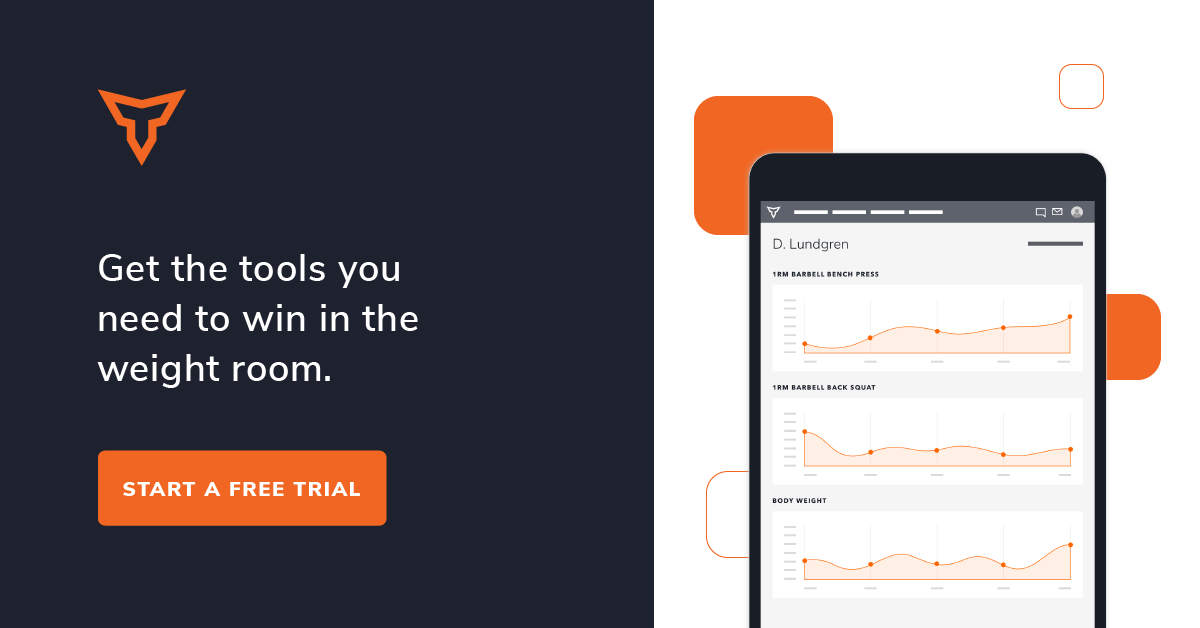Mental Health and Athletics: What is a Coach's Responsibility?
Weightlifting saved my life.
For as long as I can remember, I have struggled with depression and anxiety. As a young girl, I had no idea that what I felt wasn’t “normal” and didn’t know anything about mental health. What I did know was that every time I played a game or finished a practice, I felt better. During these hours, I could channel all my energy into playing and escape the mind that seemingly was working against me.
As an adult, I have spent many years working with professionals to help me fight this disease. While I still get slightly nervous each time I share my story, I am grateful that mental health is no longer so taboo to talk about. I’ve worked with doctors, specialists, and therapists. They all helped me in different ways and have absolutely played a role in my journey, but I’d be lying if I said I found my happiness on a therapist's' couch. Instead, I discovered it standing on the platform hook gripping my barbell.
When I began my olympic weightlifting journey my entire life changed. For the first time, I had an entire community of people who loved and supported me. They pushed me to train harder, to make better choices, and to persevere through challenges. I was part of a team again and before I knew it, found myself leaning on my teammates and coaches on my rough days and being a dependable shoulder on theirs.
The relationship between an athlete and a coach is unlike any other. They’re there to help you reach your athletic goals, but also help you grow as a person. Now that I am on the other side of this relationship, I find myself passing along a lot of the advice that my past coaches have given me.
Most of us become coaches because we want to help others succeed. so it is in our nature to want to jump in and solve every problem. But one of the best pieces of advice my coaching mentor gave me was
Never forget that you are not a trained psychologists and do not fall into the trap of thinking we have the tools to help with everything.”
No matter how badly I may want to help, I frequently find myself double checking what I’m saying and being careful not to overstep that invisible but very real line between fitness and mental health advice.
With that being said, I believe you don’t have to be a doctor to be there for someone you care about and to support them. While each athlete's situation is unique and needs to be handled as such, here are a few guidelines that I’ve found to be helpful when addressing mental health in sports.
Never Accuse an Athlete of Having a “Problem"
Being told you have something “wrong” with you is never a good start. No matter how obvious we may think it is, it's not our place as coaches to diagnose anyone. Instead, create a relationship built on trust and respect.
As an athlete who struggled with depression, I was so thankful to be able to go to my coach and talk with him. While I never directly said, “Hey Coach, I have medically diagnosed depression and today sucks,” I never needed to. He didn’t judge me or make me talk about anything. Instead, I’d notice him being extra encouraging and always letting me know he was there to chat should I want to. Coaches are observant. We know when our athletes are acting out of the ordinary and can tell if something is up.
Building a relationship where athletes are comfortable to come to you is a skill that the best coaches have.
Keep Treating Them Like an Athlete
Athletes are complex and often too hard on themselves. I find myself gently pulling back my weightlifters more often than giving them an extra push. Many athletes depend on their sport to center themself and find balance but they also tend to place their value in their performances.
One of the best things my coach did for me was to never stop treating me like an athlete and reminding me a missed lift doesn’t have to have a negative story around it. He may have known I was struggling, but he didn’t treat me like I was fragile. Instead, he did the opposite and reminded me how strong I was and how much more I had to improve if I kept pushing.
My coach believed in me and eventually I began to as well.
Be Proactive in Creating a Healthy Environment
We don’t have to wait for something to go wrong in order to create a positive and safe space. We can be proactive by encouraging openness, removing judgment and educating our athletes on the importance of mental and physical health. In weightlifting we compete in many different weight classes, as a result, weight tends to be a recurring topic.
I proactively discuss and emphasize the importance of proper nutrition with my athletes. I remind them that they need to fuel their body with real foods in order to recover and grow. As a recreational club of lifters, the scale really only matters for the ten seconds it takes to weigh in.
Instead, shift the focus to celebrate the weight on the bar and hard work your athletes are putting in.
Do Not Forget Yourself While Helping Others
We all have a limited amount of emotional energy. Every time you take on and invest in someone else’s struggle, you are spending some of it. If you don’t take the time to check in with yourself, you’ll eventually give away too much and burn out. Again, it is in a coach's nature to help others, but you can’t help anyone if you don’t remember to recharge yourself. Recognize your own limits and respect them.
Due to the value placed on mental toughness in athletics, it can be scary to ask for help for fear of being seen as weak. It’s important that we let our athletes know that taking care of your mental health is one of the toughest things you can do.
It takes guts to get help and hard work to fight back and take care of yourself. Navigating these situations will always be tricky, but through kindness, education, and patience we can help change or even save an athlete’s life without overstepping.
For more information on mental health and helping athletes with mental health check out this page from the NCAA and the Sports Science Institute.
Always remember, these are guidelines on how you can help, if you ever feel like you are out of your league never hesitate to reach out to professional or suggest your athletes to do so!
Subscribe to our blog
Subscribe to receive the latest blog posts to your inbox every week.
Related posts

Coaches in Public Health: Empowering Communities

5 Things Coaches Can Do During The COVID-19 Pandemic.


